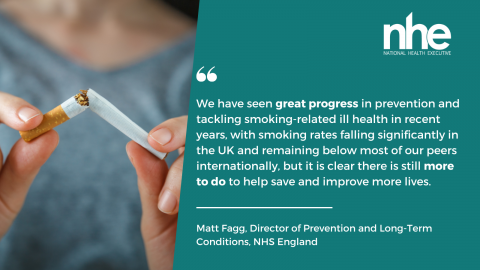The number of smoking-related hospital admissions increased by almost 5% in 2022/23 compared to the previous year, according to recently published data by NHS England.
The new figures show that, in 2022/23, around 408,700 hospital admissions were down to smoking – a 4.8% rise from 389,800 in 2021/22.
Despite the jump, the number is still well below that of 2019/20 before the pandemic, when the number of smoking-related hospital admissions was 446,400.
The news comes at the same time as a University College London study suggests that a decades-long decline in smoking has stalled.
From June 2017 to February 2020, smoking prevalence fell by 5.2% a year, but, from April 2020 to August 2022, that decline was just 0.3%.

The findings, which were published in the journal BMC Medicine, were based on survey responses from more than 100,000 adults.
A range of initiatives to help curb smoking have been rolled out by the NHS and government – most notably, the landmark legislation that will see everyone who is 14 or younger banned from smoking.
“We are doubling funding for stop smoking services, helping 360,000 people quit, and providing local authorities with one million free vapes via our world-first ‘Swap to Stop’ programme,” said public health minister, Andrea Leadsom.
Hazel Cheeseman, deputy chief executive at Action on Smoking and Health, explained: “Smoking is the leading cause of premature death responsible for half the difference in life expectancy between the most and least advantaged in society.
“The provision of tobacco dependence treatment by the NHS is playing a vital role in improving the health and wellbeing of the nation and reducing health inequalities across society.”
She continued: “When sick smokers quit they improve both their quality and length of life and free up NHS capacity at a time when, more than ever, this is sorely needed.”
Image credit: iStock



















